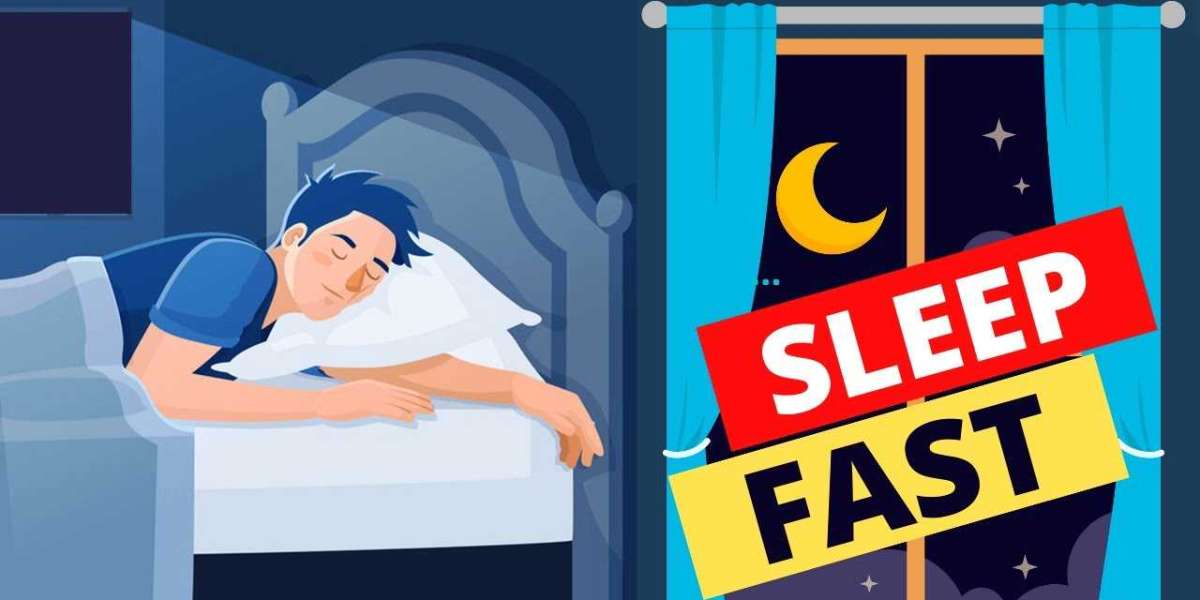Getting enough rest is essential for overall well-being, yet many people struggle with falling asleep or staying asleep throughout the night. Whether due to stress, unhealthy sleep habits, or environmental factors, the inability to rest properly can negatively impact both physical and mental health. Fortunately, there are several ways to achieve a Quick sleeping fix that can help improve sleep quality and ensure you wake up feeling refreshed. In this article, we will explore some practical solutions to resolve common sleep issues.
1. Create a Relaxing Sleep Environment
One of the most important steps to achieve a quick sleeping fix is to optimize your sleep environment. A cluttered or noisy room can disrupt your sleep cycle, making it harder to fall asleep. Try to create a calm, serene space by keeping your bedroom clean and organized. Reduce noise as much as possible and consider using white noise machines if background sound is unavoidable. Additionally, ensure your mattress and pillows are comfortable and supportive, as this plays a critical role in the quality of your sleep.
2. Develop a Consistent Sleep Routine
Having a regular sleep schedule is one of the simplest ways to fix your sleep quickly. Going to bed and waking up at the same time every day helps regulate your body’s internal clock, also known as the circadian rhythm. Over time, your body will naturally adjust to these set times, making it easier to fall asleep quickly. Establishing a bedtime routine that includes calming activities, such as reading, meditating, or taking a warm bath, can further promote relaxation and signal to your brain that it’s time to wind down.
3. Limit Exposure to Screens Before Bed
The blue light emitted from phones, computers, and televisions can interfere with your body's production of melatonin, the hormone that helps regulate sleep. To achieve a quick sleeping fix, try to avoid using electronic devices for at least an hour before bedtime. Instead, engage in activities that promote relaxation, such as deep breathing exercises or listening to soothing music. This shift in routine will encourage the body to naturally prepare for sleep, allowing you to doze off more quickly.
4. Consider Natural Sleep Aids
For those who continue to struggle with sleep, natural sleep aids may provide relief. Melatonin supplements, for example, can help regulate sleep cycles and promote faster sleep onset. Herbal teas, such as chamomile or lavender, are also known for their calming properties and can help ease the transition into sleep. Additionally, essential oils like lavender and eucalyptus, when diffused or applied topically, may aid in relaxation and provide a quick sleeping fix for those dealing with occasional sleeplessness.
5. Practice Mindfulness and Meditation
Stress and anxiety are common contributors to sleep disturbances. Practicing mindfulness and meditation can help calm the mind and release the tension that prevents restful sleep. By focusing on deep breathing and clearing the mind of intrusive thoughts, you can relax more easily and fall asleep faster. For a quick sleeping fix, consider adding a short meditation or mindfulness exercise to your bedtime routine. These practices can enhance relaxation and support deeper, uninterrupted sleep.
Conclusion
A good night’s rest is essential for maintaining your health and well-being. By creating a calming sleep environment, following a consistent sleep routine, reducing screen time, and incorporating natural remedies, you can achieve a quick sleeping fix and wake up feeling revitalized. Remember, establishing healthy sleep habits takes time and effort, but the results are well worth it.
For more information on effective sleep solutions, make sure to visit the "sleepingquickfix" website, where you can explore additional tips and strategies to improve your sleep quality.








